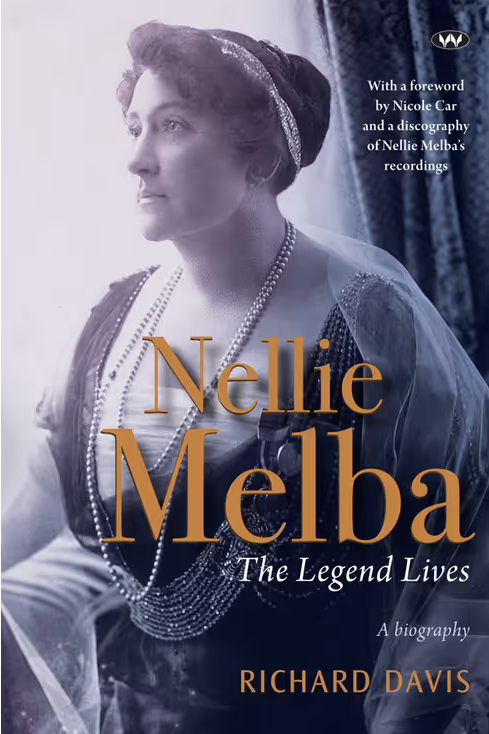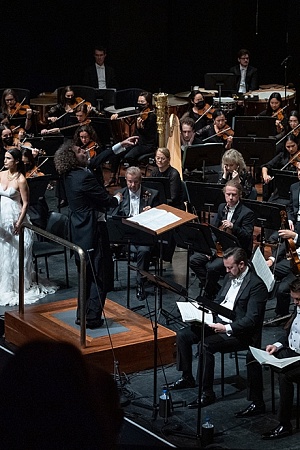Maria Callas Live: Remastered recordings 1949–1964 (Warner Classics) ★★★★1/2
Some singers – a gifted few – have voices that are so sumptuously individual that even one note instantly identifies them to the listener. In opera, Joan Sutherland and Luciano Pavarotti have that status, Dietrich Fischer-Dieskau in lieder, Elvis Presley and Louis Armstrong in rock and jazz. But none more so than Maria Callas, possibly the most celebrated soprano in history, who lit up the social pages as much as the opera stage. An often controversial figure during her career (once, at the Met, she was pelted with vegetables during a curtain call), her cult has magnified in the forty years since her death in 1977.
I see Callas as the Lady Diana of opera. Their public lives had many parallels, and Callas too can be seen as a tragic heroine, whose private life disintegrated and who ended sadly diminished, dying alone at the age of fifty-three. Her myth has flourished in the public memory, while her failings have gradually been elided.
Continue reading for only $10 per month. Subscribe and gain full access to Australian Book Review. Already a subscriber? Sign in. If you need assistance, feel free to contact us.















Comments (4)
On that latter occasion, I was in a stage box with the critic Andrew Porter and his sister Sheila, then working in the PR department at the ROH. Both had heard her in all of her appearances on stage there, I asked Porter if he sensed the voice was in serious decline. He had a clear memory of her previous 'Traviata' and said that, apart from the odd hollow head note and the acknowledged wobble when she sang forte, the impact, musical and dramatic, of those earlier performances, remained undimmed.
I take your point about the studio Ballo, but you could same about the studio Rigoletto, which is even more of a classic. The Mexico performance is a bit of a mess, to be honest, and sounds under-rehearsed, which is definitely not the case with the live La Scala Ballo, which enjoys better sound as well as a splendid cast. In some ways I prefer it to the studio version, though I do prefer Gobbi to Bastianini.
In any case, isn't it marvellous that here we are, sixty years after her death, still discussing the art of Maria Callas? The ripple effects were far reaching.
By the way, I have started reviewing the set on my own blog. Just because I enjoy doing it.
all the best
You mention a 1957 Ballo at La Scala, but that is contained in the earlier studio recordings set. It may be safe to assume that the stage forces were reconvened in the studio? It is conducted by Votto with Callas favourites di Stefano and Gobbi.
You list some operas as having poor sound, which is true compared with modern recordings, but I found the Parsifal pretty good. I had it previously on an old Cetra set which was vastly inferior. Basically, your advice is excellent: listen through the mud, and you will be richly rewarded.
Thanks again for taking the trouble to leave such a considered comment.
I have a few question marks about some of the other choices too. Like most Callas aficionados, I prefer the 1955 La Scala Norma to the Covent Garden one, the 1958 Dallas Medea to the 1953 La Scala and the 1957 Cologne Sonnambula to the 1955 La Scala one (also in much better sound). I wonder too why they went for the Mexico Rigoletto, when the studio set is one of the classics of the gramophone, and this Mexico one, both in terms of performance and sound, a bit of a mess. Surely La Scala's 1957 Un Ballo in Maschera would have been a better choice.
Other than that, the choices seem pretty good, but one should also point out that the Warners aren't always the best choice in terms of sound. In particular Divina Records and Ars Vocalis, small operations though they are, have come up with results that are sometimes better than Warner (Divina's Anna Bolena being a case in point).
Still, it's good to have these performances more readily available, though casual buyers should be advised that the sound of some of them (Nabucco, La Vestale, Parsifal, Armida, Alceste to name a few) can be pretty intransigent, and requires a good deal of forbearance on the part of the listener. You have to listen "through" the sound, as it were, to the performance itself. If you can do that, the rewards are prodigious.
Leave a comment
If you are an ABR subscriber, you will need to sign in to post a comment.
If you have forgotten your sign in details, or if you receive an error message when trying to submit your comment, please email your comment (and the name of the article to which it relates) to ABR Comments. We will review your comment and, subject to approval, we will post it under your name.
Please note that all comments must be approved by ABR and comply with our Terms & Conditions.